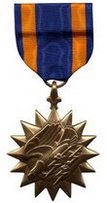Bernie Byrne
Ballplayers Decorated in Combat
| Date and Place of Birth: | August 29, 1920 St. Louis, MO |
| Date and Place of Death: | March 1, 2008 St. Louis, MO |
| Baseball Experience: | Minor League |
| Position: | Second Base |
| Rank: | Major |
| Military Unit: | 59th Fighter Squadron, 33rd Fighter Group USAAF |
| Area Served: | Mediterranean Theater of Operations and China-Burma-India Theater |
Bernie and Bobby
Byrne were the sons of former major league third baseman, Bobby
Byrne. Both brothers played in the minor leagues before the war. Both
joined the Army Air Force and flew fighter combat missions. Both shot
down enemy planes.
Bernard R. Byrne was born on August 29, 1920, in St. Louis, Missouri.
The son of former major league third baseman Bobby Byrne (1907 to 1917
Cardinals, Pirates, Phillies and White Sox), the 19-year-old second
baseman signed with the Appleton Papermakers of the Class D Wisconsin
State League in 1940, appearing in 21 games and batting .176. He also
briefly played with the Paragould Browns of the Class D Northeast
Arkansas League that year.
Byrne entered military service in 1942, and learned to fly the Curtiss
P-40 Warhawk fighter plane at Sarasota Army Airfield, Florida. He was
commissioned a second lieutenant at Luke Field, Arizona, on February 5,
1943. In May 1943, he was assigned to the Mediterranean Theater with the
59th Fighter Squadron of the 33rd Fighter Group.
The 33rd Fighter Group was one of the more widely traveled groups of the
Army Air Force, taking part in Operation Torch, the Tunisian campaign,
the invasions of Sicily and Italy, and the Anzio campaign before being
transferred to the Far East, fighting in China and Burma.
Byrne was only with the group for a brief time in North Africa, before
it moved, in June 1943, to Pantelleria, an Italian island in the Strait
of Sicily in the Mediterranean Sea. During this time he performed many
ground attack strikes against German forces on Sicily. Once, during a
dive-bombing mission over Sicily, he said he went through anti-aircraft
fire "thicker than fog," and had to land in a weed patch because of a
failing engine. He came out safely but his plane was wrecked.
Once Sicily was secure, the 33rd Fighter Group was based there before
moving to mainland Italy in September 1943. On September 15, his 24th
mission, Byrne shot down his first enemy plane, a Focke-Wulf Fw 190
German fighter. "It was just like hitting my first home run," he said
afterwards. "It was the first good shot I had. I dived down on that boy
from 8,000 feet and caught him right off base. I poured in about 380
rounds. He slipped off smoking and went down, exploding when he hit the
ground. Then I looked back and there was a big radial engine looking at
me right in my face. A Focke-Wulf had slipped onto my tail, but Lt. R.
A. Williams dived in and drove him off. When I landed there was a letter
from dad. He said he supposed the telephone would ring some day and the
local paper would be telling him that I had bagged a Heinie."
Byrne was awarded the Air Medal and three Oak Leaf clusters for
"outstanding performances in Sicily and Italy." He also received the
Distinguished Flying Cross.
In February 1944, the group was moved to the China-Burma-India Theater,
with its base at Karachi, India. On March 11, 1944, Byrne was forced to
bail out of his P-40 Warhawk with the engine on fire. he parachuted to
safety 15 miles from his airfield. Shortly after this incident, the
Warhawks were replaced with Republic P-47 Thunderbolts and moved to
China, where it performed as a fighter-interceptor unit, operating
against Japanese attacks, before returning to India in September 1944.
His brother, Bobby, flew with the 57th Fighter Group and shot down six enemy aircraft in North Africa.
Major Bernie Byrne was approaching 25 years old when the war ended. He became a businessman in his hometown of St. Louis, and was a keen amateur golfer. Byrne passed away on March 1, 2008. He was 87 years old and is buried at Jefferson Barracks National Cemetery in Lemay, Missouri.
Date Added January 28, 2018
Can you add more information to this biography and help make it the best online resource for this player? Contact us by email
Read Baseball's Greatest Sacrifice Through The Years - an online year-by-year account of military related deaths of ballplayers
Baseball's Greatest Sacrifice is associated with Baseball Almanac
Baseball's Greatest Sacrifice is proud to be sponsored by


